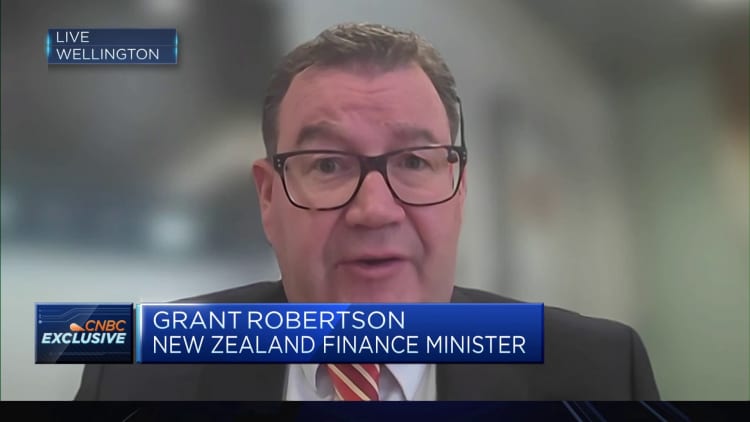New Zealand’s finance chief denies pandering to voters’ cost-of-living concerns

New Zealand’s finance minister has denied the country’s new budget is aimed at placating voters ahead of the country’s next general election in October.
Asked if the budget was short-term thinking to spend and worry about inflation and high deficits later, Grant Robertson replied: “On no, we’re absolutely doing both of those things at the same time.”
In an exclusive interview with CNBC on Friday, Robertson said: “I think sometimes finance ministers get accused of doing all sorts of things in election years, but actually I feel my job here is to help New Zealanders through this difficult economic time, but also look to those years ahead with inflation a bit lower.”
His comments come after New Zealand allocated millions for reconstruction following severe weather events and announced measures aimed at helping people cope with rising cost of living despite a larger-than-expected government deficit.
The country on Thursday forecast a deficit of 7 billion New Zealand dollars ($4.37 billion) for the year ending June 2023, compared to a forecast last December for a deficit of NZ$3.6 billion.
New Zealand is also not projected to return to surplus until 2025-2026, a year later than previously forecast. The Treasury sees inflation slowing to 3.3% by mid-2024, from the current blistering 6.7% pace.
The Reserve Bank of New Zealand has warned that a boost in government spending could add to aggressive inflation that has already seen the central bank increase the official cash rate by 500 basis points since October 2021, Reuters reported.
“We’ve been pretty targeted and the cost-of-living support that we put out in this budget, particularly as you noted around young families, and support for health costs and so on,” Robertson told CNBC.
“We very much had in mind to making sure that this budget contributed to inflation coming down.”
For all the latest World News Click Here
For the latest news and updates, follow us on Google News.

